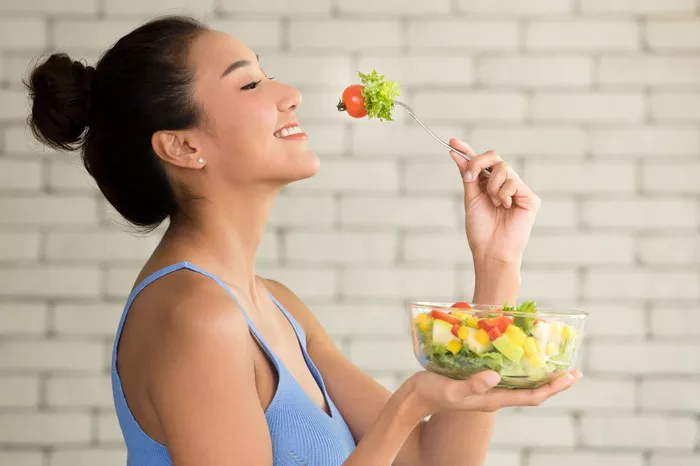Healthy, strong hair is not just a result of good genetics or expensive hair products—it starts from within. Nutrition plays a vital role in hair health, and fruits, packed with vitamins, minerals, and antioxidants, are among the best natural tools to support hair growth. This essay explores 15 fruits known to enhance hair strength, thickness, and shine by addressing nutrient deficiencies, protecting hair follicles, and improving scalp health.
Each section breaks down the fruit’s key nutrients, their benefits for hair, and practical ways to incorporate them into your diet.
Avocado
Key Nutrients: Vitamin E, healthy fats, biotin, and vitamin C.
Benefits for Hair:
- Vitamin E acts as an antioxidant, protecting hair from environmental damage like UV rays and pollution. It also improves blood circulation to the scalp, ensuring hair follicles receive adequate nutrients.
- Healthy fats (monounsaturated fats) moisturize the scalp, reducing dryness and flakiness.
- Biotin strengthens keratin (the protein that makes up hair), preventing breakage and split ends.
How to Use: Add avocado to salads, blend into smoothies, or mash into a hydrating hair mask mixed with yogurt.
Oranges
Key Nutrients: Vitamin C, folate, and antioxidants.
Benefits for Hair:
- Vitamin C boosts collagen production, a protein that strengthens hair strands and prevents brittleness. It also aids iron absorption, reducing the risk of anemia-related hair loss.
- Antioxidants combat free radicals that weaken hair follicles.
How to Use: Eat whole, drink fresh juice, or apply diluted orange juice to the scalp to reduce dandruff.
Strawberries
Key Nutrients: Vitamin C, silica, and ellagic acid.
Benefits for Hair:
- Silica improves hair thickness and elasticity.
- Ellagic acid prevents hair thinning by protecting follicles from hormone-related damage.
How to Use: Blend into smoothies, add to oatmeal, or crush into a scalp-scrubbing exfoliant.
Blueberries
Key Nutrients: Antioxidants (anthocyanins), vitamin C, and vitamin B complex.
Benefits for Hair:
- Anthocyanins improve blood flow to the scalp, promoting follicle health.
- Vitamin B reduces stress, a common cause of hair loss.
How to Use: Snack on them fresh, mix into yogurt, or create a hair mask with honey.
Bananas
Key Nutrients: Biotin, potassium, and silica.
Benefits for Hair:
- Biotin repairs damaged hair and prevents premature graying.
- Potassium hydrates the scalp, reducing itchiness.
How to Use: Eat as a snack, blend into smoothies, or mash into a hair mask for shine.
Papaya
Key Nutrients: Vitamin A, vitamin C, and folate.
Benefits for Hair:
- Vitamin A regulates sebum production, keeping the scalp moisturized.
- Folate promotes cell renewal, supporting new hair growth.
How to Use: Eat ripe papaya alone or apply mashed raw papaya to the scalp to unclog follicles.
Kiwi
Key Nutrients: Vitamin C, vitamin E, and copper.
Benefits for Hair:
- Copper helps produce melanin, preserving hair color.
- Vitamin E repairs split ends and reduces frizz.
How to Use: Add to fruit salads or blend into a hair-strengthening smoothie.
Pineapple
Key Nutrients: Vitamin C, manganese, and bromelain.
Benefits for Hair:
- Bromelain (an enzyme) reduces scalp inflammation and dandruff.
- Manganese strengthens hair structure.
How to Use: Drink pineapple juice or apply it to the scalp to remove dead skin cells.
Guava
Key Nutrients: Vitamin C (4x more than oranges), lycopene.
Benefits for Hair:
- Lycopene improves scalp circulation, encouraging growth.
- Vitamin C prevents hair oxidation, which leads to thinning.
How to Use: Eat raw, blend into juices, or use guava-leaf tea as a hair rinse.
Apples
Key Nutrients: Quercetin, polyphenols, and vitamins.
Benefits for Hair:
- Quercetin reduces inflammation linked to hair loss.
- Polyphenols stimulate follicles for faster growth.
How to Use: Eat with skin intact or rinse hair with apple cider vinegar diluted in water.
Pomegranate
Key Nutrients: Antioxidants, punicic acid, and vitamin K.
Benefits for Hair:
- Punicic acid strengthens hair roots, reducing fallout.
- Vitamin K enhances protein synthesis for thicker strands.
How to Use: Add seeds to salads or massage pomegranate juice into the scalp.
Mango
Key Nutrients: Vitamin A, vitamin E, and beta-carotene.
Benefits for Hair:
- Beta-carotene converts to vitamin A, preventing dry scalp.
- Vitamin E repairs heat-damaged hair.
How to Use: Blend into smoothies or mix pulp with coconut oil for a conditioning mask.
Watermelon
Key Nutrients: Lycopene, vitamins A and C, and high water content.
Benefits for Hair:
- Hydration from water content prevents brittle hair.
- Lycopene protects hair from sun damage.
How to Use: Eat fresh or apply juice to hair for hydration.
Cherries
Key Nutrients: Melatonin, vitamin C, and iron.
Benefits for Hair:
- Melatonin extends the hair growth phase.
- Iron prevents anemia-related shedding.
How to Use: Snack on fresh cherries or use cherry juice in hair rinses.
Grapes
Key Nutrients: Resveratrol, vitamins, and antioxidants.
Benefits for Hair:
- Resveratrol delays hair aging by stimulating follicle cells.
- Antioxidants improve scalp health.
How to Use: Freeze grapes for snacks or crush into a scalp treatment.
Conclusion
Incorporating a variety of fruits into your diet provides essential nutrients that address multiple aspects of hair health, from strengthening strands to improving scalp conditions. While no single fruit is a miracle cure, a balanced diet rich in avocados, citrus, berries, and tropical fruits creates an optimal environment for hair growth. Pair these dietary choices with proper hydration and scalp care for the best results. Remember, healthy hair begins with nourishing your body from the inside out!
Related topics:
Eating More Fruits and Veggies Could Help Prevent Gray Hair
Which Fruit is Good for Hair Thickening? A Full Guide
Which Fruit is Good for Black Hair? A Detailed Analysis


